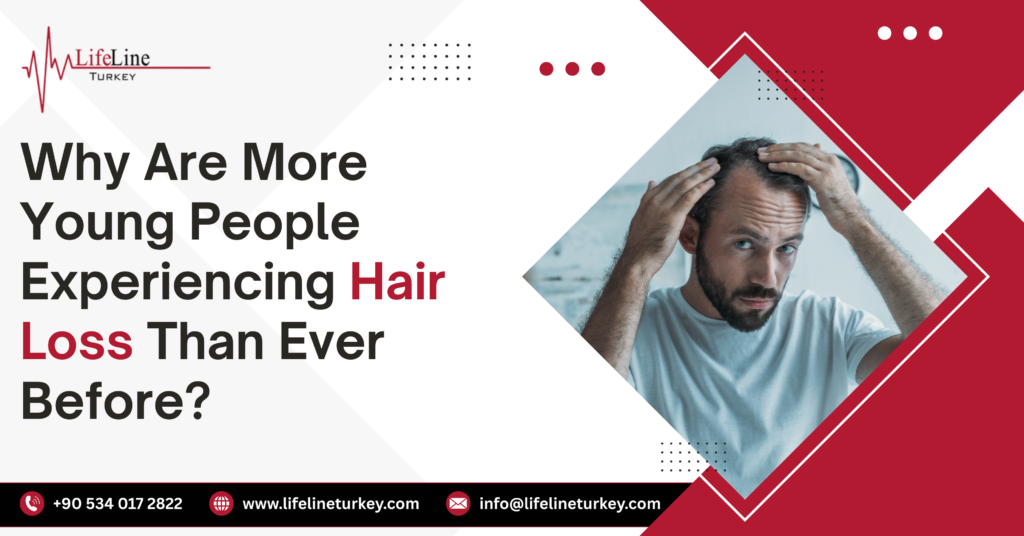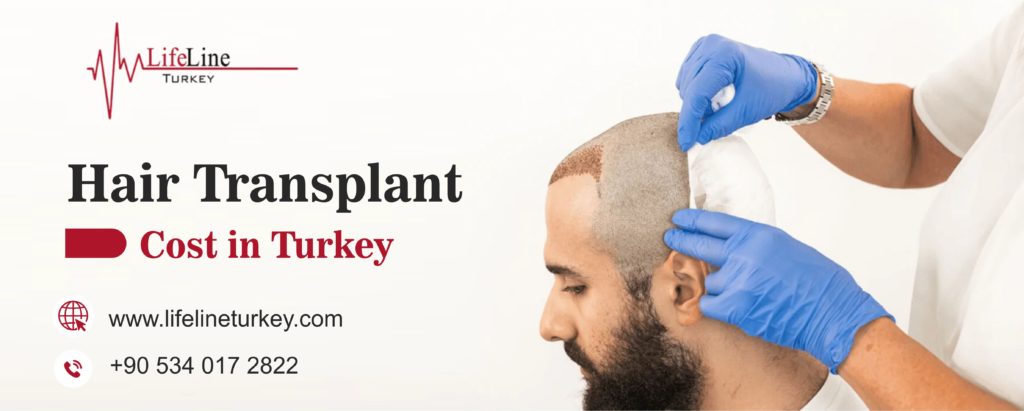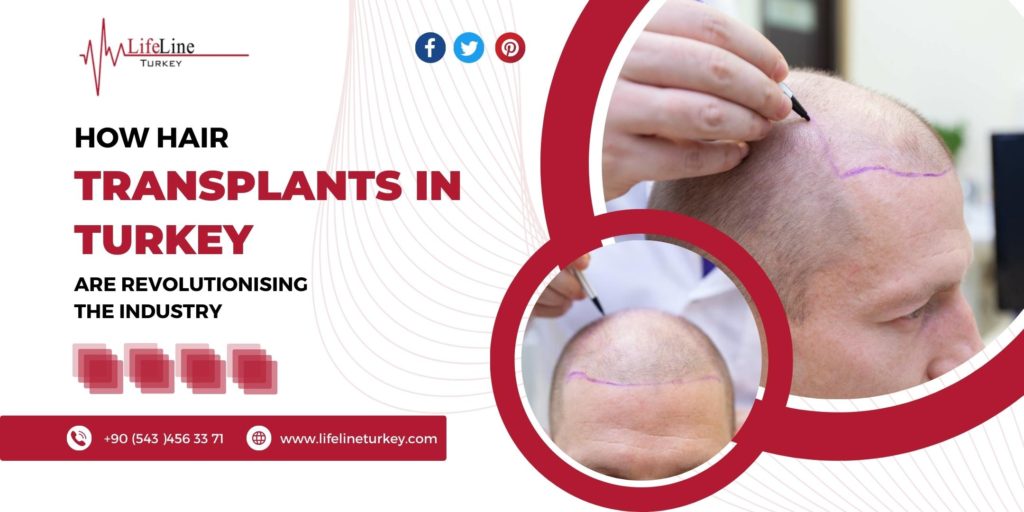Hair loss is no longer a concern solely for older generations. Many teens and young adults face thinning hair, receding hairlines, and even bald patches. This shift has sparked alarm, and it’s not difficult to see why. We live in a world where appearances often hold weight in social and professional circles. So, what’s behind this alarming hair loss trend among younger people? The rise in hair loss has led many young people to explore various solutions. hair transplants in Turkey are becoming increasingly popular for those who want to restore their hairlines.
The condition is not just a cosmetic issue. It also has a profound emotional and psychological impact. This blog post will explore the causes of the rise in hair loss among youth.
The Stress Epidemic
Stress has become a constant companion for many young people between school, work, social expectations, and financial pressures. Stress plays a significant role in hair loss. Students stay up all night to finish assignments, and young professionals deal with stressful work environments. Everyone tries to meet the perfect standards set by social media.
When we’re stressed, our bodies release a hormone called cortisol. Elevated cortisol levels can negatively impact our hair follicles, pushing them into a resting phase, which leads to shedding. This condition is known as telogen effluvium, one of the most common types of hair loss caused by stress.
The Rise of Unhealthy Lifestyle Habits
- Diet: A lack of proper nutrition can hinder the health of our hair. Hair requires essential vitamins and minerals, such as iron, zinc, and biotin, to grow and remain strong. However, many young people have diets that are low in these nutrients, especially with the rise of fast food, sugary snacks, and processed foods. A poor diet deprives hair follicles of the nutrients they need, potentially leading to thinning hair or hair loss.
- Sleep: Sleep is another pillar of health that has taken a hit. The average young adult gets far less sleep than recommended. They stay up late to finish assignments, binge-watch shows, or scroll through social media. Poor sleep can lead to hormonal imbalances and stress, contributing to hair problems.
- Sedentary lifestyle: As we spend more time on screens, fewer young people are getting enough exercise. Exercise increases blood circulation, delivering oxygen and nutrients to the hair follicles. A lack of physical activity can lead to poor circulation, affecting hair growth.
The Social Media Pressure
Social media constantly exposes people to images of perfection, flawless skin, perfect hair, and idealized body types. The effects can be devastating to mental health. It leads to feelings of inadequacy and self-consciousness.
Interestingly, this pressure can indirectly contribute to hair loss. The need to look perfect can drive people to extreme beauty treatments or fad diets that can be harmful. For example, excessive styling products, dyes, and heat tools can damage the hair shaft, leading to breakage and thinning. Similarly, restrictive diets can deprive the body of nutrients for healthy growth.
Additionally, the emotional toll of comparing oneself to influencers or celebrities can lead to stress and anxiety, both of which are linked to hair loss.
Genetic Factors
We can’t ignore genetics’ role in this. Hormones and family history, which link to male and female pattern baldness, do not discriminate based on age. Androgenic alopecia (the scientific term for pattern baldness) can begin as early as the teenage years.
Many young men notice a receding hairline or thinning at the top of their heads in their 20s, which is often influenced by their family history. Genetics and environmental factors can also cause hair thinning in women at an earlier age. As more people learn how these genetic factors play a role, they look for early treatments to slow down or stop them.
Hormonal Changes and Medical Conditions
Hormonal fluctuations, especially in women, can also lead to hair loss. Conditions like polycystic ovary syndrome (PCOS), thyroid imbalances, and postpartum hair loss can cause thinning or shedding. Even using birth control pills or undergoing other hormone-related treatments can lead to changes in growth patterns.
In addition to this, medical conditions such as autoimmune diseases (e.g., alopecia areata) and certain infections can lead to sudden or severe hair loss. These conditions are less common but are increasingly diagnosed in younger individuals.
Overuse of Hair Products
Haircare While haircare products aim to nourish and protect our hair, excessive use of certain chemicals can lead to damage, and sprays to hair dyes and shampoos containing sulfates, parabens, and alcohol, many products can strip the hair of its natural oils and weaken the follicles.
The constant use of heat tools, such as flat irons and blow dryers, can further increase the problem, causing dryness and breakage. People maintain a trendy look, but these styling habits can cause significant damage over time.
The Solution: Mindful Hair Care and Self-Care
- Stress Management: Learning to manage stress is crucial for mental and physical health. Activities like yoga, meditation, and deep breathing help reduce stress levels, which may reduce hair loss.
- Proper Nutrition: A balanced diet rich in vitamins and minerals is essential for hair health. Foods like leafy greens, nuts, seeds, eggs, and lean proteins can help nourish them from the inside out.
- Good Hair Care Practices: Avoid over-washing, excessive heat styling, and harsh chemicals. Choose sulfate-free shampoos, limit the use of hair dyes, and opt for natural oils and conditioners that hydrate and nourish.
- Seek Professional Help: If hair loss persists, it’s worth consulting a dermatologist or trichologist (a specialist in hair and scalp health). They can diagnose any underlying conditions and recommend treatments, whether topical solutions, medications, or lifestyle changes.
- Acceptance and Confidence: It’s also essential to embrace hair’s natural beauty. Seeking support and adopting styles that make you feel confident can boost self-esteem.
Empower Yourself to Fight Hair Loss Early and Effectively!
By focusing on the factors mentioned above, you can make significant strides in protecting the health of your hair. You do not need to feel discouraged if you notice thinning or receding. Advances in hair restoration techniques, such as hair transplants, offer a viable and effective solution for many. It can restore your hairline and boost your self-esteem.
When considering hair treatment, choosing a trusted and experienced provider is crucial. Lifeline Turkey provides one of the best hair transplants in Turkey. We are known for expertise, advanced technology, and outstanding results. With highly skilled professionals, we offer personalized treatment plans to ensure you get the best care and the most natural-looking results. Contact us today to help you regain not only your hair but your confidence as well!



